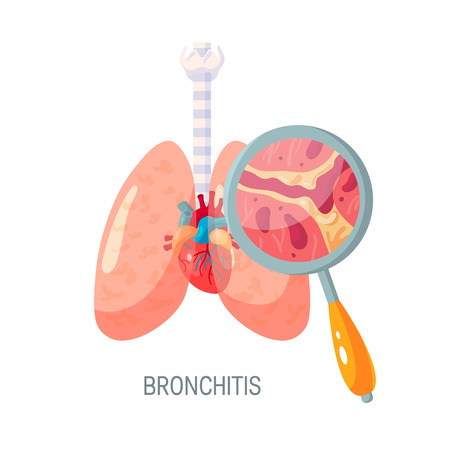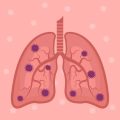Introduction to COPD in the UK Context
Chronic Obstructive Pulmonary Disease (COPD) is a significant public health challenge across the United Kingdom, affecting over 1.2 million people and ranking as one of the leading causes of morbidity and mortality. The prevalence of COPD in the UK is notably higher than in many other European countries, largely due to historic patterns of tobacco use, an ageing population, and ongoing exposure to environmental pollutants. The impact of COPD extends beyond individual health, placing substantial pressure on the NHS through frequent hospital admissions and long-term care requirements. Despite its widespread nature, societal awareness about COPD remains limited, with many cases undiagnosed or diagnosed late. This lack of awareness can hinder early intervention and effective management. Given the unique demographic and environmental factors present in different regions across the UK, localised approaches to COPD management are essential. Tailoring interventions such as pulmonary rehabilitation programmes to suit the specific needs of UK communities ensures more effective care and ultimately improves outcomes for those living with this chronic condition.
2. What Are Pulmonary Rehabilitation Programmes?
Pulmonary rehabilitation programmes are comprehensive, multidisciplinary interventions specifically designed to support individuals living with Chronic Obstructive Pulmonary Disease (COPD). These programmes aim to improve physical and psychological wellbeing by combining exercise training, education, and behavioural change strategies. In the UK, pulmonary rehabilitation is widely recognised as a cornerstone of COPD management, forming an integral part of NHS care pathways for respiratory health.
Core Components of Pulmonary Rehabilitation
| Component | Description |
|---|---|
| Exercise Training | Structured physical activity tailored to individual ability, focusing on increasing endurance and muscle strength. |
| Education | Sessions covering COPD management topics such as inhaler technique, medication adherence, and recognising exacerbations. |
| Psychosocial Support | Addressing mental health concerns like anxiety or depression that commonly accompany chronic illness. |
| Behavioural Change Strategies | Encouraging lifestyle adjustments such as smoking cessation, healthy eating, and consistent activity routines. |
| Self-Management Planning | Developing personalised action plans for symptom control and when to seek medical help. |
Pulmonary Rehabilitation in the Context of the NHS
The NHS prioritises pulmonary rehabilitation as an evidence-based intervention for people with moderate to severe COPD who experience breathlessness despite optimal medical therapy. These programmes are typically delivered by a team including physiotherapists, respiratory nurses, occupational therapists, and dietitians. By empowering patients to manage their condition more effectively, pulmonary rehabilitation not only improves quality of life but also reduces hospital admissions and overall healthcare costs.
Integration with Broader Healthcare Strategies
Pulmonary rehabilitation aligns with the NHS Long Term Plan’s focus on preventive care, patient self-management, and reducing avoidable hospital admissions. It supports the goal of delivering more care closer to home and ensures that people with COPD have access to structured support within their local community settings. Referral pathways are well-established through GP practices or specialist respiratory clinics, making these programmes accessible across the UK.

3. Benefits of Pulmonary Rehabilitation for COPD Patients
Pulmonary rehabilitation programmes have become an integral part of COPD management across the UK, providing tangible benefits that extend well beyond basic lung function. The evidence base is robust, demonstrating improvements in physical health, psychological wellbeing, and overall quality of life for British patients living with chronic obstructive pulmonary disease.
Physical Improvements
One of the most immediate and measurable benefits of pulmonary rehabilitation is enhanced physical capacity. Structured exercise sessions tailored to individual ability levels have been shown to improve walking distance and muscle strength. Many NHS trusts report that patients completing these programmes experience reduced breathlessness during daily activities and fewer exacerbations requiring hospital admission. This translates into greater independence at home and more confidence navigating the local community—whether it’s a walk down to the shops or simply managing stairs.
Psychological Benefits
The psychological toll of COPD should not be underestimated, with many British patients experiencing anxiety or depression linked to breathlessness and social isolation. Pulmonary rehabilitation incorporates education and group support, which help normalise these feelings and build coping strategies. Evidence from UK studies suggests participants often report improved mood, reduced anxiety about flare-ups, and a stronger sense of social connection. Peer support within group settings is particularly valued, offering shared understanding in a distinctly British context where “just getting on with it” sometimes masks deeper struggles.
Quality of Life Enhancements
Ultimately, the goal of pulmonary rehabilitation is to enhance quality of life. National audits and patient feedback consistently highlight improvements in daily functioning—from managing household chores to returning to cherished activities like gardening or attending football matches. The holistic approach, combining physical training with education about medication management, nutrition, and pacing techniques, empowers patients to take control over their condition. For many in the UK, this means fewer GP visits, less reliance on emergency services, and a renewed sense of autonomy.
Supporting Evidence from British Programmes
Data from the British Thoracic Society and local NHS trusts underline the effectiveness of pulmonary rehabilitation when delivered according to national guidelines. These outcomes are not just clinical metrics but real-world changes that matter deeply to individuals and families. As more attention is given to personalised care planning within the NHS Long Term Plan, pulmonary rehabilitation stands out as a cost-effective intervention with wide-reaching impact.
4. Accessing Pulmonary Rehabilitation through the NHS
For patients with Chronic Obstructive Pulmonary Disease (COPD) in the UK, pulmonary rehabilitation is a key part of managing symptoms and improving quality of life. The NHS provides structured pulmonary rehabilitation programmes across England, Scotland, Wales, and Northern Ireland. This section offers a practical step-by-step guide for patients and carers on how to access these services, understand eligibility criteria, and know what support is commonly available.
Step-by-Step Guide to Accessing Pulmonary Rehabilitation
- Speak to Your GP or Respiratory Nurse: If you have been diagnosed with COPD and are experiencing breathlessness or reduced activity levels, book an appointment with your GP or specialist nurse. They will assess your suitability for pulmonary rehabilitation.
- Referral Process: Your healthcare professional will complete a referral form and send it to your local NHS pulmonary rehabilitation service. Some areas may allow direct referrals from hospital respiratory teams after an admission for a COPD exacerbation.
- Initial Assessment: You will be invited for an initial assessment at a local clinic or community health centre. This usually includes a review of your medical history, a physical assessment (such as the six-minute walk test), and discussion about your goals.
- Eligibility Confirmation: Most NHS pulmonary rehabilitation programmes are open to people with moderate to severe COPD who experience daily breathlessness (usually MRC Dyspnoea Scale grade 2 or above). Other chronic lung conditions may also be eligible depending on local policy.
- Programme Enrolment: Once assessed as suitable, you will be offered a place in a group-based programme, typically running twice weekly for 6–8 weeks. Sessions are led by physiotherapists and specialist nurses.
- Completion and Ongoing Support: After completing the programme, you should receive advice on maintaining exercise routines at home or joining community exercise groups. Follow-up reviews are often scheduled to support long-term self-management.
Commonly Available NHS Pulmonary Rehabilitation Services
| Service Component | Description | Typical Location |
|---|---|---|
| Exercise Training | Supervised sessions including walking, cycling, strength exercises tailored to ability | Community centres, hospital outpatient departments, leisure centres |
| Education Sessions | Covers breathing techniques, medication management, nutrition, coping strategies | During rehab sessions or via virtual platforms (where available) |
| Psycho-social Support | Peer support groups, advice on mental wellbeing and living with COPD | Group sessions within the rehab programme |
| Carer Involvement | Information and support for carers attending with patients | Varies by site; some offer dedicated carer sessions |
| Post-Programme Maintenance | Advice on ongoing exercise; signposting to community activities or Breathe Easy groups (run by British Lung Foundation) | Mainly community-based resources |
NHS Referral Pathways Summary
| NHS Region | Main Point of Access | Additions/Variations |
|---|---|---|
| England & Wales | GP/Respiratory Nurse referral; secondary care after hospital admission | Some Trusts offer online self-referral pilots for known COPD patients |
| Scotland & Northern Ireland | Mainly through GP or hospital respiratory teams; local Health Boards manage provision | Certain rural areas may use outreach/virtual clinics due to travel distances |
Please Note:
If you feel you would benefit from pulmonary rehabilitation but have not been offered it, discuss this proactively with your healthcare team. Waiting times can vary by region; some services also offer remote or hybrid options post-pandemic. For more details, visit the NHS website or contact your local respiratory care team.
5. Living Well with COPD: A Patients Perspective
Adapting to Daily Life with COPD
Living with Chronic Obstructive Pulmonary Disease (COPD) presents daily challenges, yet many in the UK find ways to adapt and thrive. Everyday activities such as walking to the local shop or climbing stairs may require more planning and pacing, but simple adjustments—like using mobility aids or breaking tasks into smaller steps—can make a significant difference. Many patients emphasise the importance of listening to one’s body and allowing time for rest, without feeling guilty about slowing down.
Community Support Networks
The sense of community plays a vital role in managing COPD within the UK. Numerous local support groups, often organised through NHS trusts or charities like the British Lung Foundation, offer both practical advice and emotional encouragement. These groups provide spaces where individuals can share experiences, swap tips on managing breathlessness, and even participate in group exercise sessions tailored to various abilities. It is not uncommon for friendships formed in these settings to become a crucial source of motivation and resilience.
Personal Stories: Empowerment through Pulmonary Rehabilitation
For many, joining a pulmonary rehabilitation programme is a turning point. Stories from participants across the UK frequently highlight newfound confidence gained from learning breathing techniques, gentle exercises, and education about their condition. One patient from Manchester shared how participating in a local NHS rehab class helped her regain independence by improving her stamina enough to enjoy gardening again. Another gentleman from Bristol mentioned that regular group sessions gave him both physical benefits and a sense of camaraderie—knowing he was not facing COPD alone.
Small Wins Matter
Celebrating small victories is a recurring theme among those living well with COPD. Whether it’s managing to walk further than last week or having fewer flare-ups thanks to medication adherence and lifestyle changes, recognising progress fosters hope and self-efficacy. Patients often advocate keeping a diary of daily achievements and symptoms, which can be shared with healthcare teams during check-ups.
Empowerment through Knowledge
Ultimately, empowerment comes from understanding one’s condition and being proactive in management. Accessing reliable information from reputable UK sources, engaging regularly with healthcare professionals, and staying involved in supportive communities enable people with COPD to maintain independence and enjoy life as fully as possible.
6. Challenges and Future Directions in the UK
Despite the well-documented benefits of pulmonary rehabilitation (PR) for individuals living with Chronic Obstructive Pulmonary Disease (COPD), access to these programmes across the UK remains uneven and fraught with several obstacles. One major challenge is geographical disparity; those residing in rural or deprived urban areas often face longer waiting times and limited availability of local services. Additionally, there is a persistent lack of awareness among both patients and primary care providers regarding the referral pathways and potential outcomes of PR, which leads to underutilisation.
The British healthcare system, while comprehensive, is under significant pressure due to rising patient numbers and limited resources. Funding constraints can result in service rationing or programme closures, especially when financial priorities shift within NHS trusts. Transportation difficulties, work commitments, and co-morbidities also act as barriers for many individuals, particularly older adults who may struggle with mobility or lack social support.
Innovative solutions are emerging to address these challenges. The expansion of digital health platforms—such as remote PR sessions delivered via video call—has shown promise, particularly during the COVID-19 pandemic. These online interventions help bridge the gap for those unable to attend in-person sessions. There is also growing interest in integrating PR more closely with primary care networks and community-based initiatives, ensuring more seamless referrals and consistent follow-up.
From a policy perspective, recent NHS England guidance advocates for increased investment in PR services and standardisation of delivery models across regions. The development of national quality frameworks aims to ensure that all COPD patients, regardless of postcode, receive equitable access to evidence-based rehabilitation. Continued collaboration between clinicians, policymakers, and patient advocacy groups will be crucial in shaping future services.
Looking ahead, sustained commitment to innovation and equitable funding will determine whether the UK can overcome current obstacles. By embracing technology and prioritising integrated care pathways, the British healthcare system has an opportunity to lead the way in effective COPD management through pulmonary rehabilitation.

